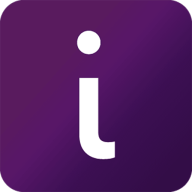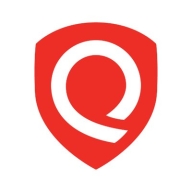

Qualys Web Application Scanning and Acunetix compete in the web application security space. Based on our comparisons, Acunetix appears to have the upper hand due to its powerful automatic scanning capabilities and ability to detect hidden vulnerabilities.
Features: Qualys Web Application Scanning offers patch management, vulnerability management, and PCI compliance with a consolidated reporting console. It integrates seamlessly with DevOps environments like Jenkins. Acunetix is renowned for its automatic scanning and ability to detect hidden vulnerabilities missed by manual checks. It provides a flexible testing environment and features low false positive rates, making it a favored tool for detailed vulnerability analysis.
Room for Improvement: Qualys could enhance its pricing models, offer better integration with non-OWASP standards, and improve its navigation interface. Enhancement in crawling capabilities for deeper penetration testing is also essential. Acunetix faces challenges with high pricing and a non-flexible licensing model. Improvements in scan speed and further reduction in false positives could strengthen its market position.
Ease of Deployment and Customer Service: Qualys offers flexible deployment options across public, hybrid, and private clouds, and is noted for its 24/7 support with positive feedback on helpfulness. Acunetix, though primarily on-premises with more on-site maintenance required, is praised for effective technical support but could improve proactive customer engagement.
Pricing and ROI: Qualys has a varied pricing structure, generally seen as offering good value, especially at the enterprise level, with strong ROI due to scalability and cost reduction. Acunetix is often criticized for high costs and a notable rise in licensing prices over time, impacting cost-effectiveness compared to its initial claims, making ROI a challenge.
It saves a significant amount of time by covering attack surfaces.
The technical support from Invicti is very good and fast.
The technical support from Acunetix is quite good
They have various options in the vulnerability management process, and when we initially bought our license, we didn't realize we needed PCI for better results, which isn't included in the default configurations.
Once we purchase the license, we have access to top-notch support.
I have dealt with Qualys's technical support, and any enhancements are challenging.
It produces similar vulnerability results as other tools such as Nessus based on version checks instead of real impact checks.
At one point, there was a limitation on reporting for 100,000 assets at a time.
It is licensed for assets, so we just contact the team for additional licenses if needed.
Acunetix should have better integration with newer tools such as GitHub and Azure DevOps.
The support program was helpful in addressing it.
Qualys Web Application Scanning does IP-level testing, requiring direct input of credentials, and can only scan a few pages to provide known generic vulnerabilities.
With the growing reliance on AI, Qualys Web Application Scanning should be updated to handle AI-based applications and LLM-based attacks.
One area of improvement is reducing false positives by prioritizing agent findings over remote findings when there is a corresponding local agent finding.
We secured a special licensing model for penetration testing companies, which is cost-effective.
The pricing of Acunetix is pretty expensive and could be improved.
They offer discounts on bulk licenses, making it cheaper compared to competitors like Veracode DAST.
I find it a bit expensive compared to other competitors.
Regarding pricing, I think for personal use, it is costly, but if organizations are ready to pay, then it is fine as they are using it.
Acunetix integrates with every type of tool, including CI/CD tools, offering 100% integration in DevOps environments.
Its most valuable role is in enhancing security by identifying potential vulnerabilities efficiently.
I find it to be one of the most comprehensive tools, with support for manual intervention.
It effectively detects vulnerabilities like the OWASP Top 10 without any issues in reporting.
The advantage of Qualys Web Application Scanning lies in its user-friendly dashboard and appealing reports, which are useful for presentation to leadership.
Credential scanning is very effective because it goes in-depth into the system, crawling the pages, and reporting on vulnerabilities.
| Product | Market Share (%) |
|---|---|
| Qualys Web Application Scanning | 2.0% |
| Acunetix | 2.5% |
| Other | 95.5% |


| Company Size | Count |
|---|---|
| Small Business | 15 |
| Midsize Enterprise | 5 |
| Large Enterprise | 14 |
| Company Size | Count |
|---|---|
| Small Business | 8 |
| Midsize Enterprise | 6 |
| Large Enterprise | 27 |
Acunetix Web Vulnerability Scanner is an automated web application security testing tool that audits your web applications by checking for vulnerabilities like SQL Injection, Cross site scripting, and other exploitable vulnerabilities.
Qualys Web Application Scanning (WAS) is a fully cloud-based web application security scanner. The scanner will automatically crawl periodically and test web applications to discover potential vulnerabilities, including cross-site scripting (XSS) and SQL injection. The consistent testing equips the automated service to generate consistent results, lessen false positives, and offer the ability to scale to protect thousands of websites effortlessly.
Qualys Web Application Scanning is bundled with different scanning technology to carefully scan websites for malware infections and will send notifications to website owners to assist in preventing blacklisting and brand reputation damage. As digital transformation takes place in various organizations, Qualys WAS gives organizations the ability to track and document their web app security status through its interactive reporting capabilities.
Qualys WAS empowers organizations to remediate any web application vulnerabilities quickly. Some of the key tools offered are:
Benefits of Qualys Web Application Scanning
Qualys Web Application Scanning offers many benefits, including:
Reviews from Real Users
Qualys Web Application Scanning stands out among its competitors for a variety of reasons. Two of those reasons are its progressive scan and quick detection of vulnerabilities.
P.K., a senior software developer at a tech vendor, writes, "The feature that I have found most valuable is the progressive scan. It is good. It's done in 24 hours."
Nagaraj S., lead cybersecurity engineer at a tech service company, notes, "I have found the detection of vulnerabilities tool thorough with good results and the graphical display output to be wonderful and full of colors. It allows many types of outputs, such as bar and chart previews."
We monitor all Application Security Tools reviews to prevent fraudulent reviews and keep review quality high. We do not post reviews by company employees or direct competitors. We validate each review for authenticity via cross-reference with LinkedIn, and personal follow-up with the reviewer when necessary.